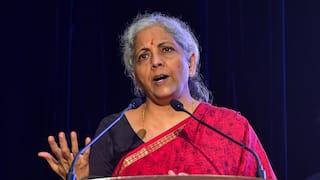Harbinger Of Health: How Suposhan Sanginis Help Fight Malnourishment
Suposhan Sanginis, health volunteers trained under the Suposhan Project implemented by the Adani Foundation, have been spreading awareness among the people across 22 locations in the country

Two-year-old Anya had to struggle to stand on her feet. At one year and a few months, Jaimin was just 65 cm tall and weighed only 6 kg. For 4-year-old Ashwini, walking with a protruding belly, which was caused by a liver ailment, was almost impossible. All of them showed symptoms of malnourishment, which is very high particularly in children belonging to poor Indian families. It’s a cause for concern because about one-third of malnourished children globally are Indian.
Malnutrition can happen not only due to poverty but also because of a lack of knowledge about a balanced diet and proper hygiene and sanitation. Nutrient deficiencies can lead to weak limbs, poor weight, anaemia, stunted growth, and other illnesses. But there is hope. Suposhan Sanginis, health volunteers trained under the Suposhan Project implemented by the Adani Foundation, have been spreading awareness among the people across 22 locations in the country, mostly rural areas.
They reach out to people, interact with them, and educate them about the importance of maintaining hygiene and a healthy diet. They visit households and anganwadis to gather information about children, girls, and women. Following this, they start counselling the people. There face several challenges, prominent among them being initial resistance and lack of trust in them.
It was during these visits that Sanginis came across Anya in a Varanasi slum, Jaimin in a village in Borisana, Gujarat, and Ashwini in a small village Pandharakhedi, in Saoner block of Nagpur, Maharashtra.
Born to labourers, who earn a daily wage of Rs 400, Anya would subsist on bread morsels. Absence of proper food resulted in poor health, and she faced difficulty in walking. Suposhan Sangini Sharda Khadse counselled the family, and Anya was admitted to the Nutrition Rehabilitation Center (NRC) where she was monitored constantly. Doctors administered her vitamin D injections, iron syrup, calcium, and multivitamins. Within a couple of weeks, her health began to show improvement. Today, she walks with confidence.
Similarly, Jaimin was admitted to the Community Management of Acute Malnutrition Treatment Center (CMTC) near his village Borisana, and Ashwini was admitted to the Government Medical College and Hospital in Nagpur. Under constant monitoring of doctors and the Suposhan team, their health improved. The Sanginis’ presence and their timely intervention came as a source of strength for the children and their families.
The Sanginis’ role does not end here. They do regular follow-ups with the children and their families. Together with medical care, nutritional guidance, and the unwavering support of Sanginis, children regain their strength, health, and the joy of childhood.
The commitment of the Sanginis and the impact of the Suposhan Project –alleviating malnutrition and anaemia among children, adolescent girls, pregnant women, lactating mothers, and women in the reproductive age – are bringing about a transformative change.





































